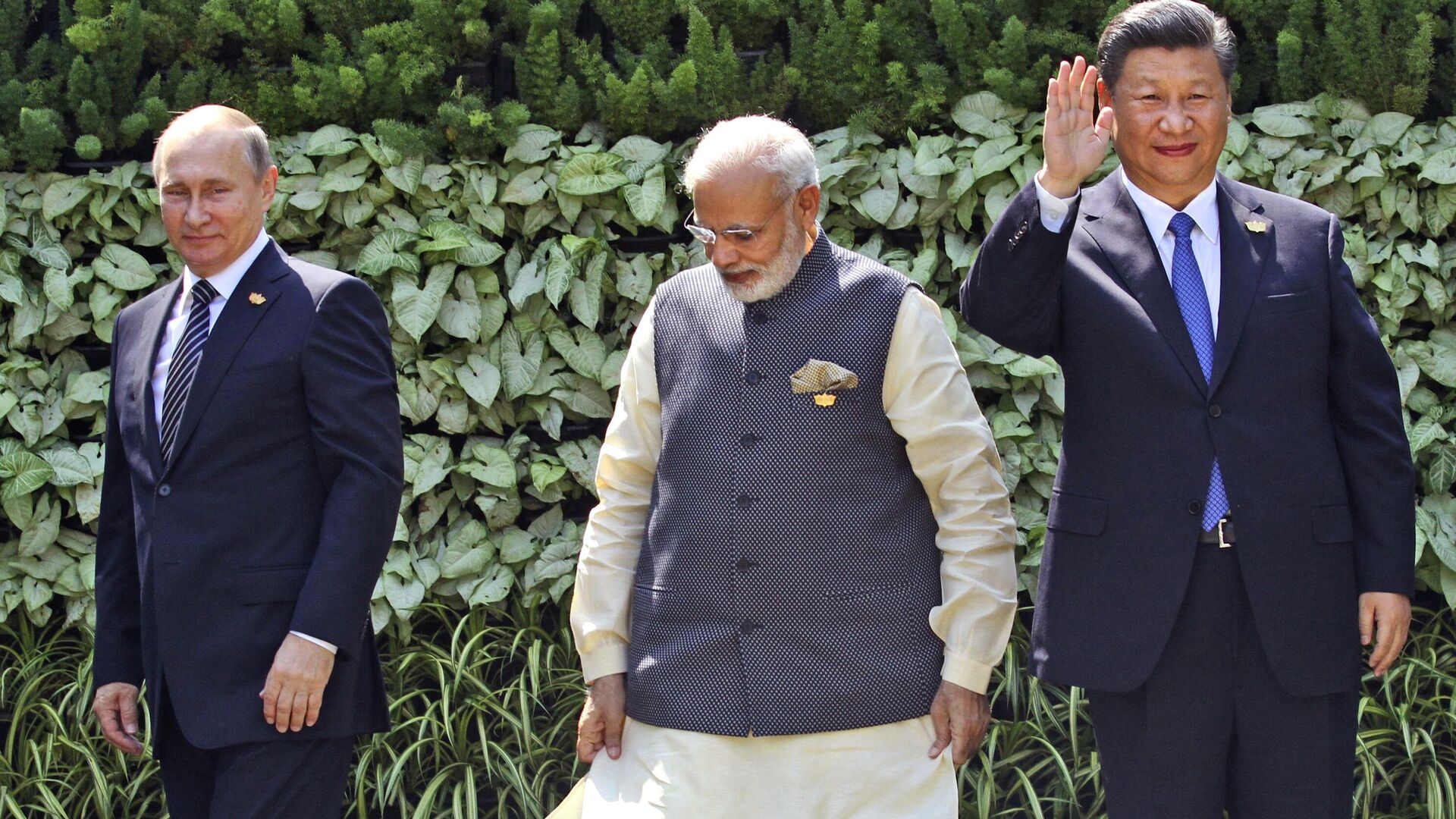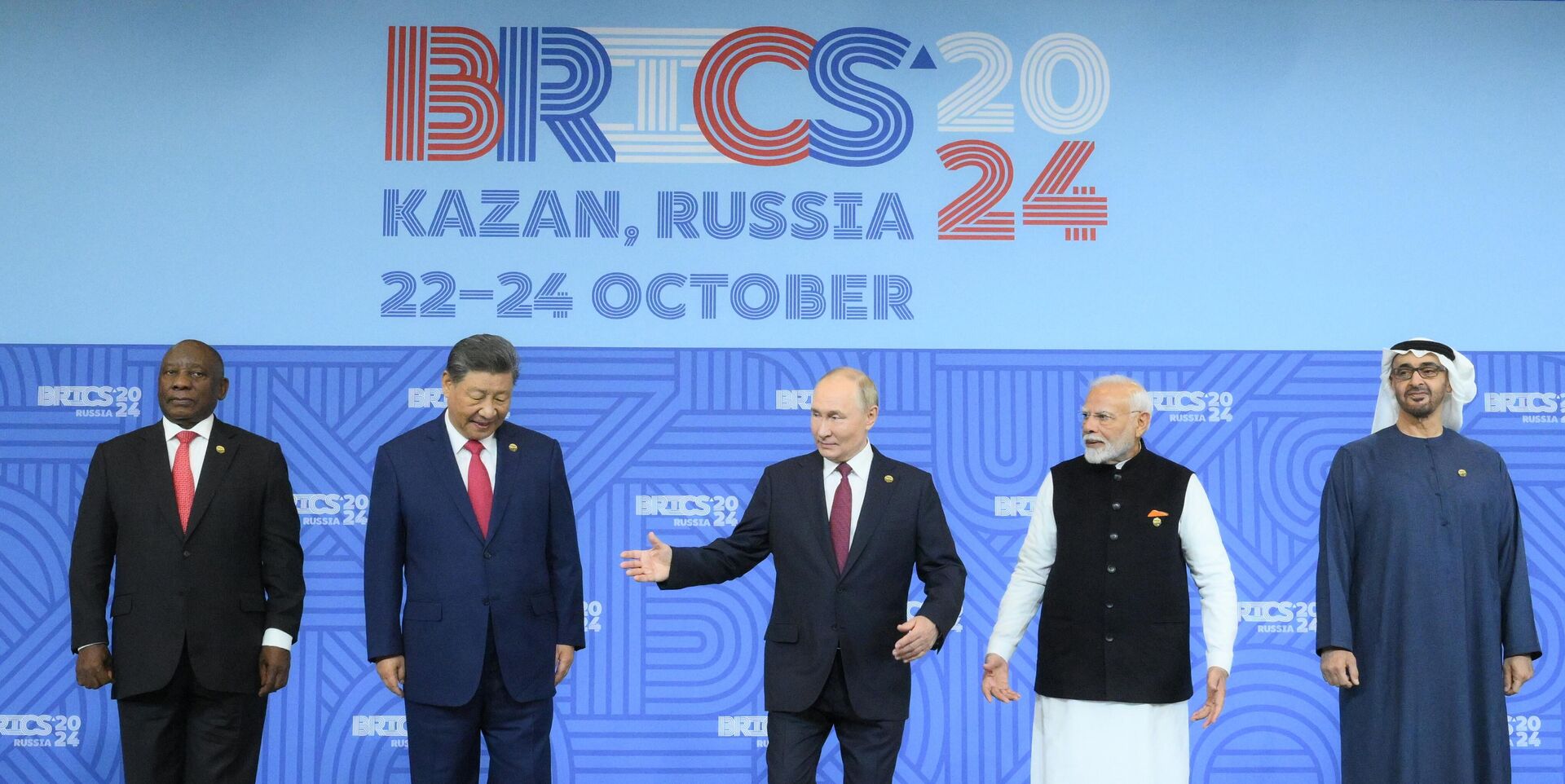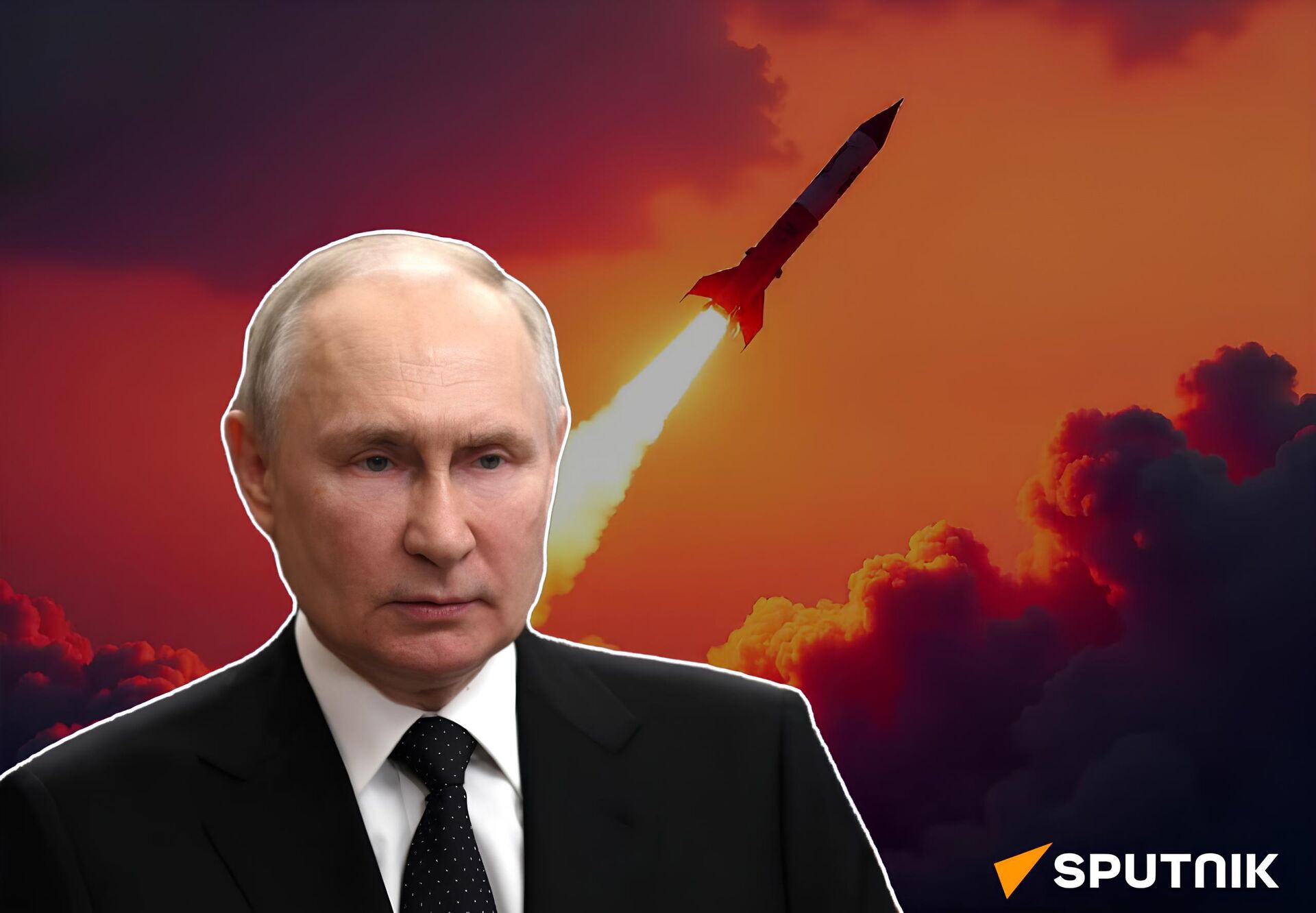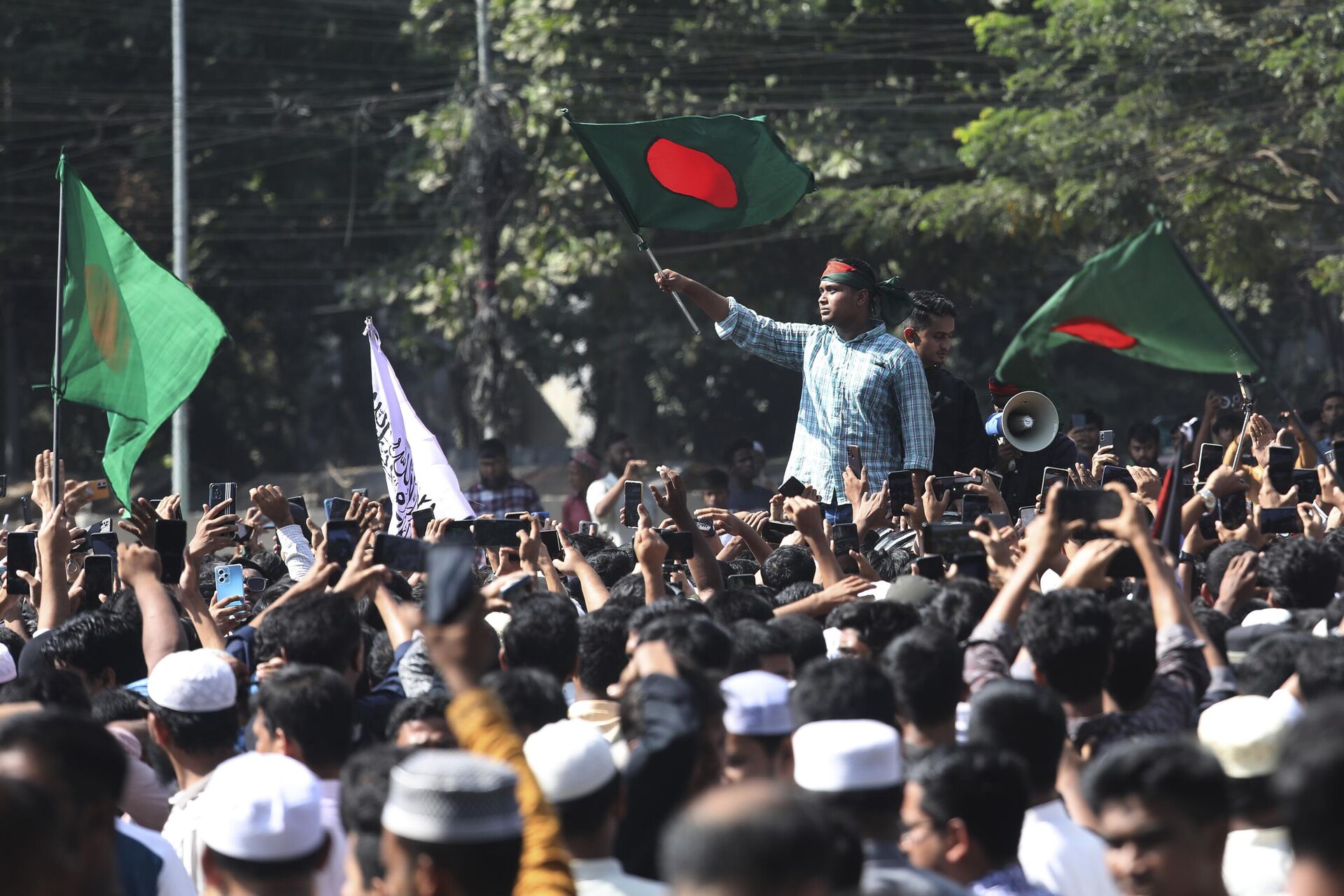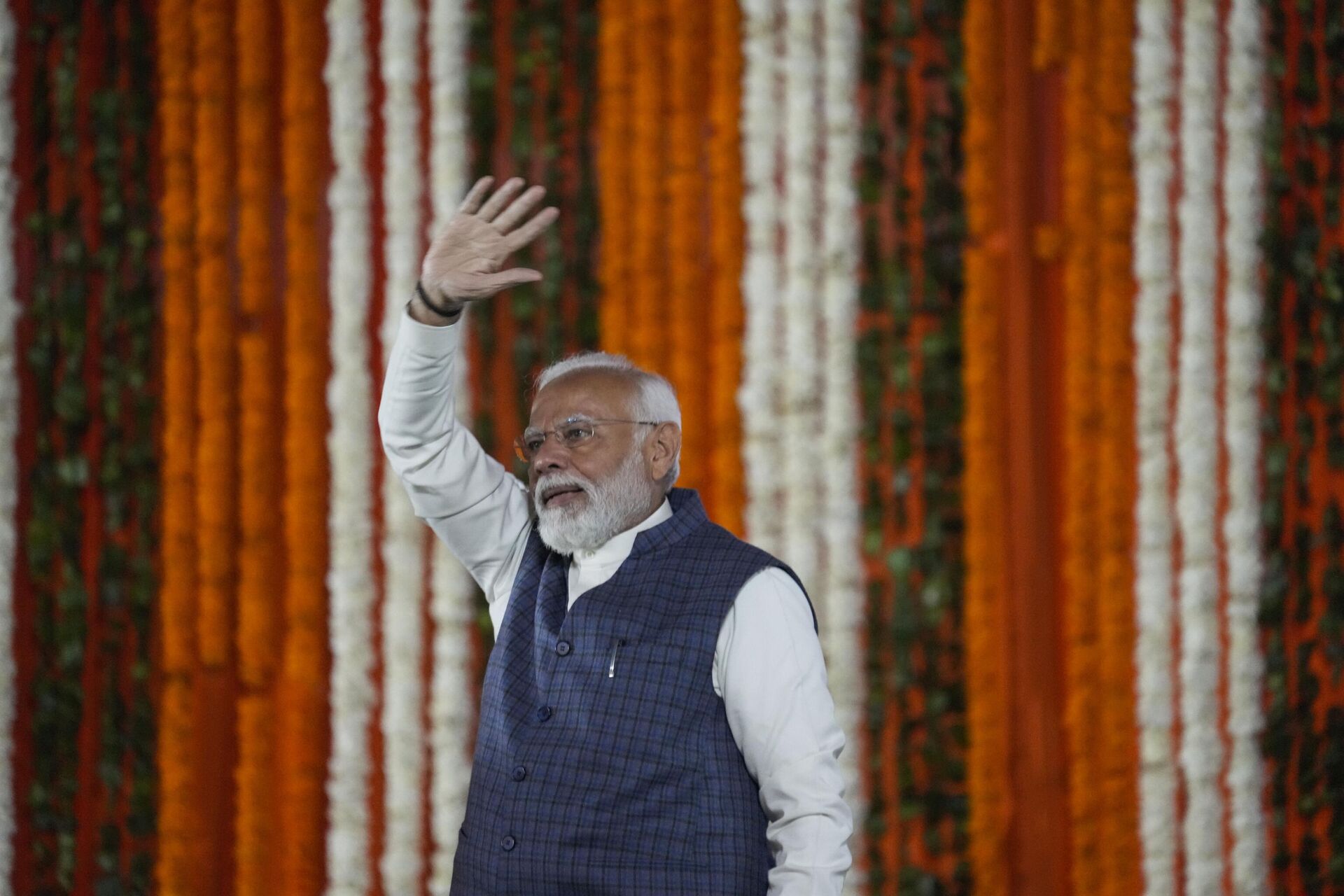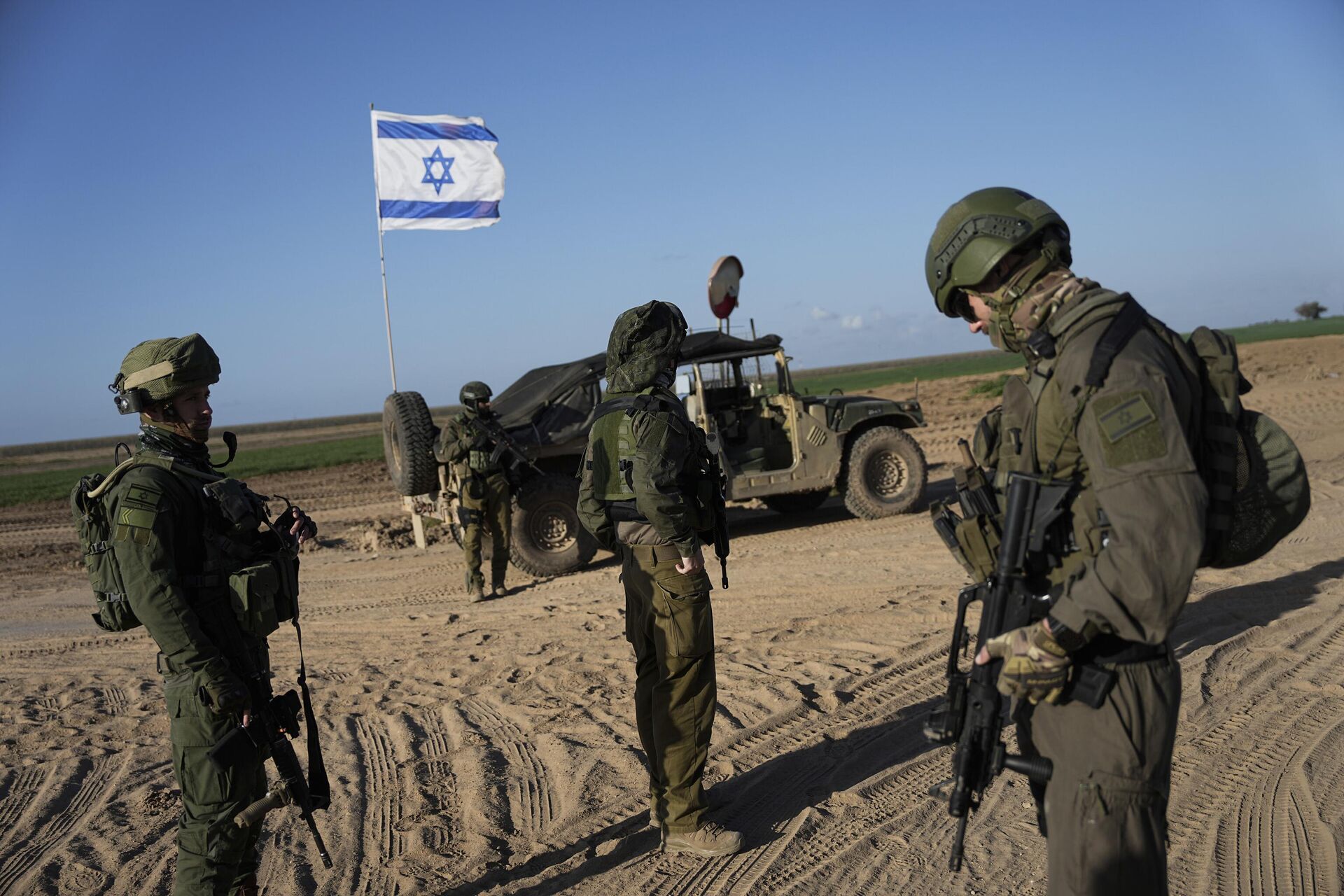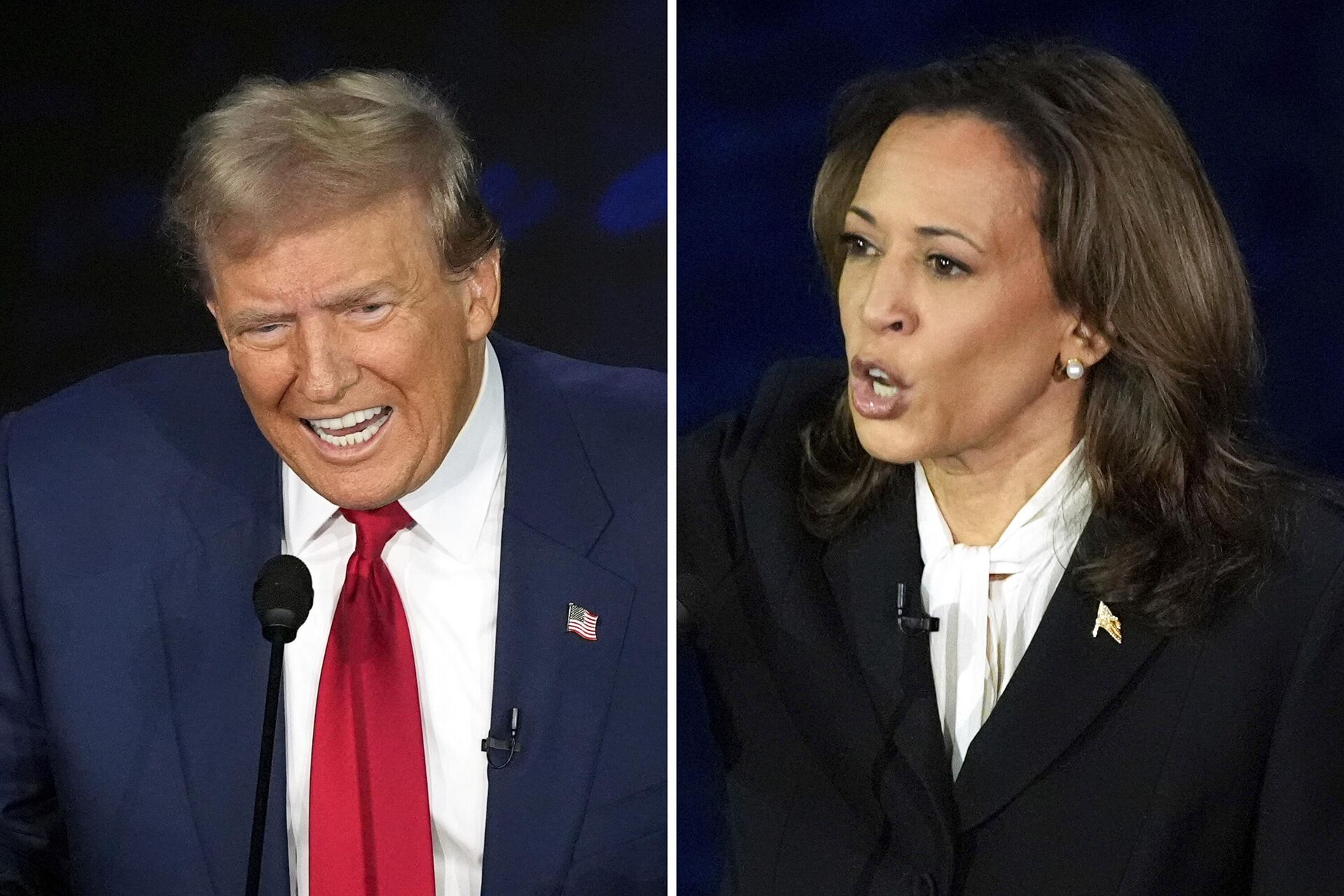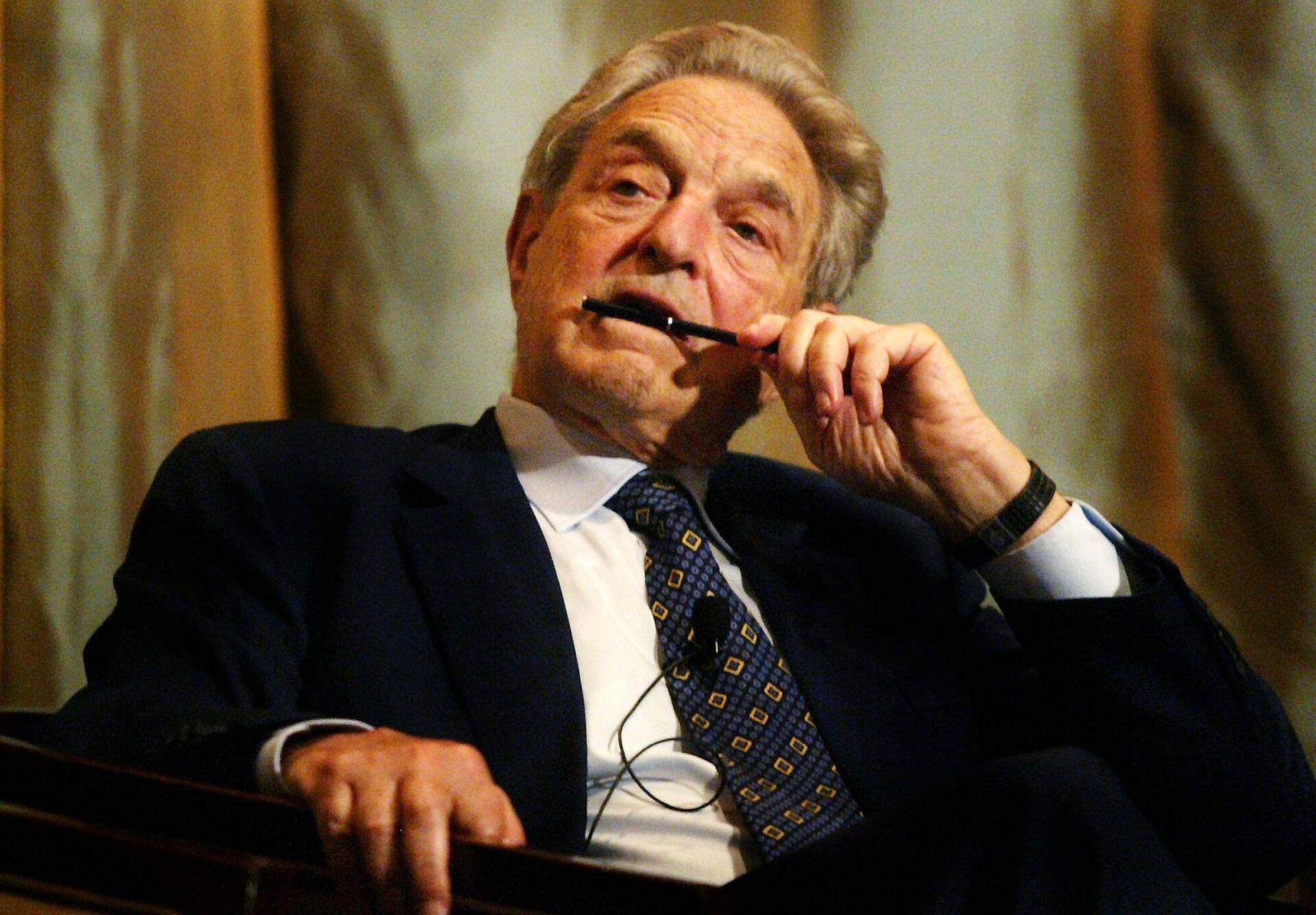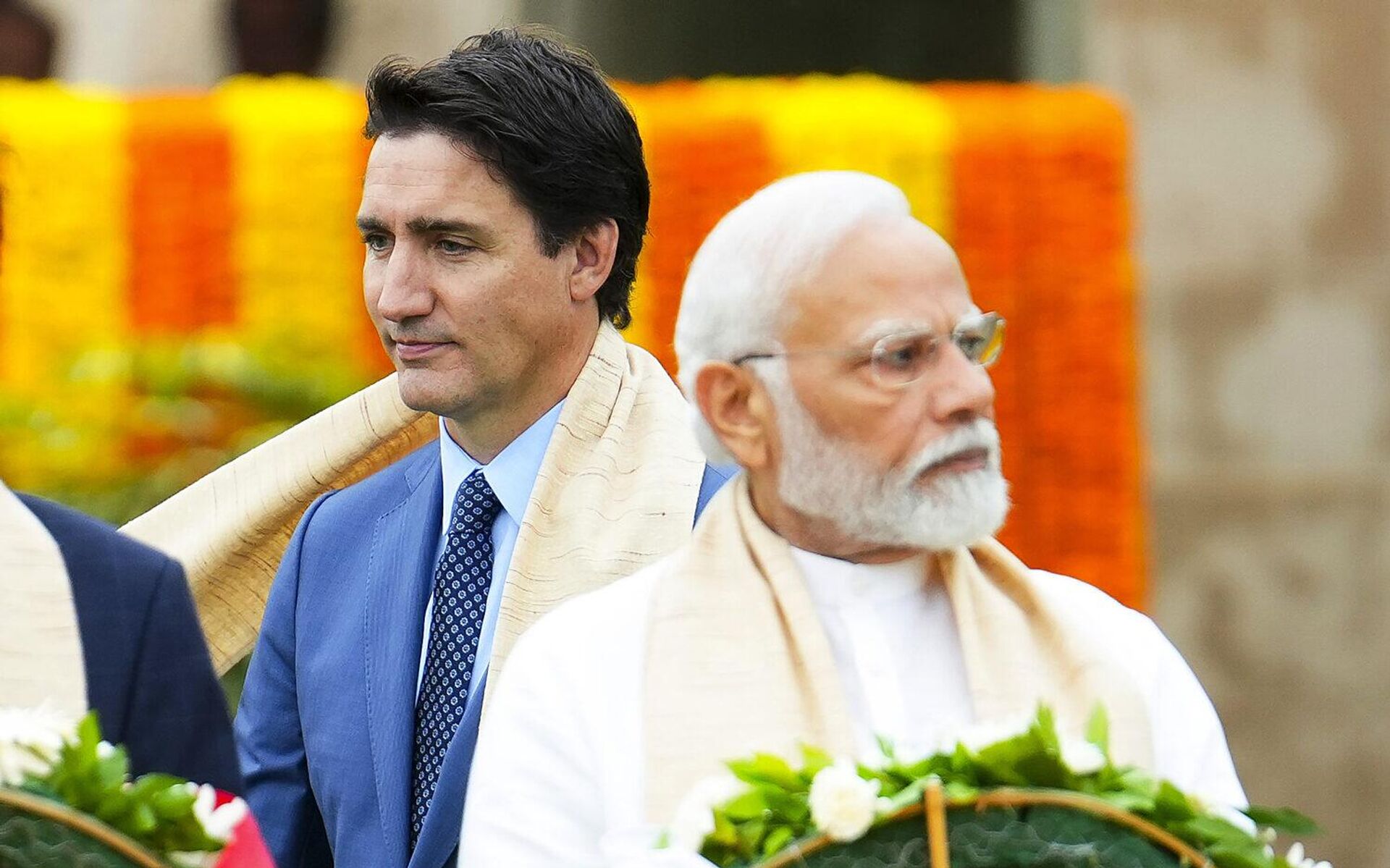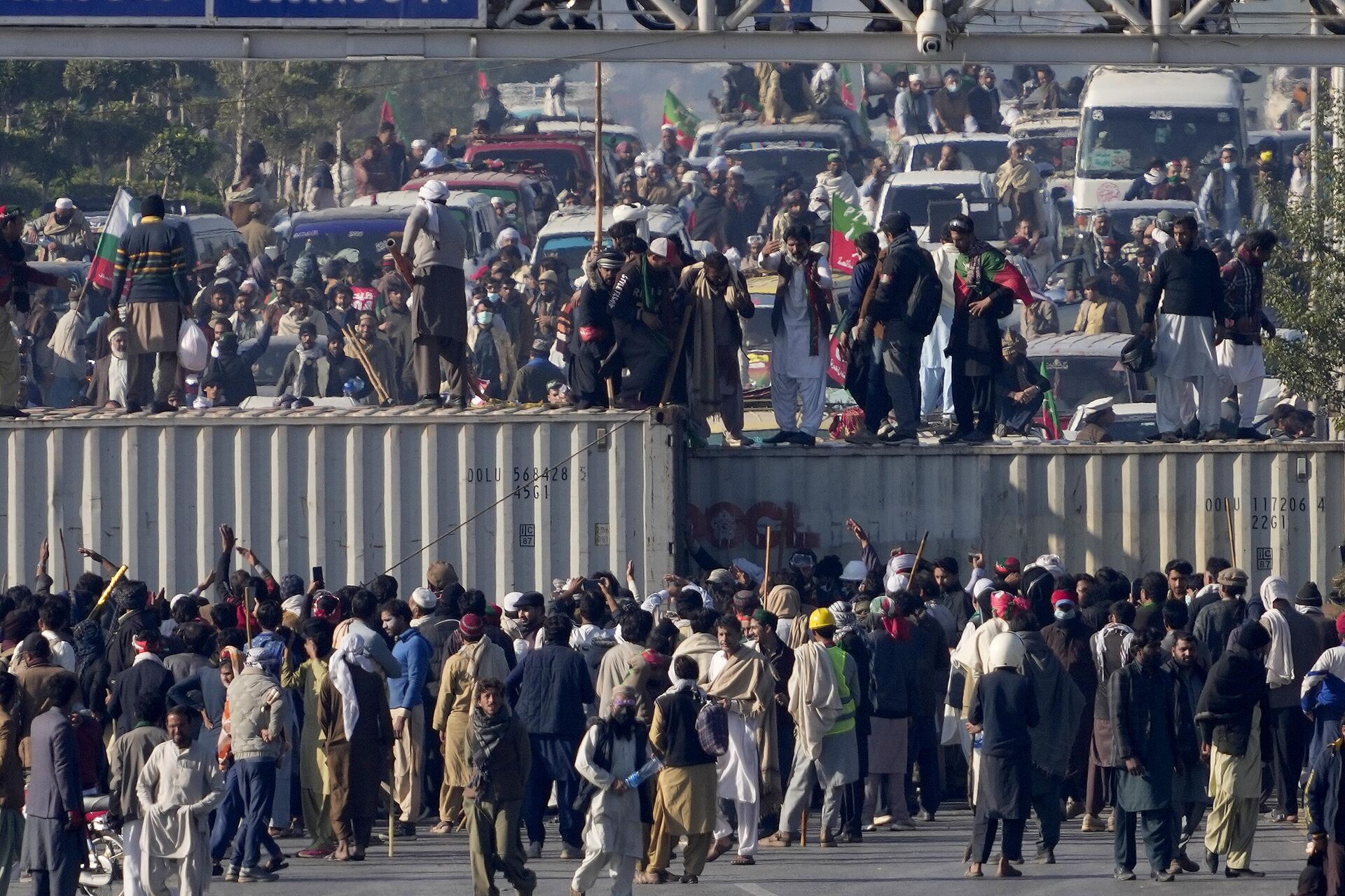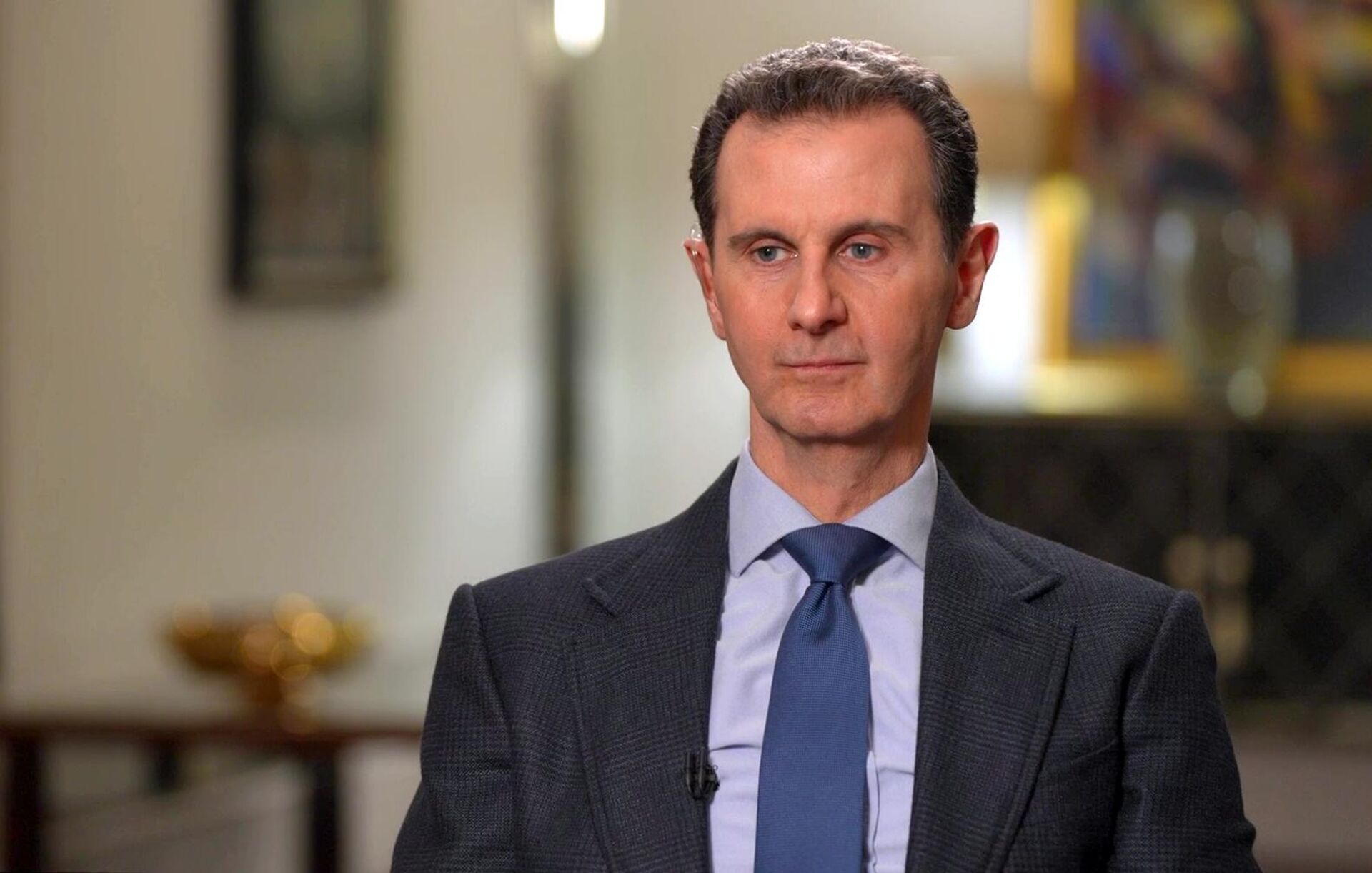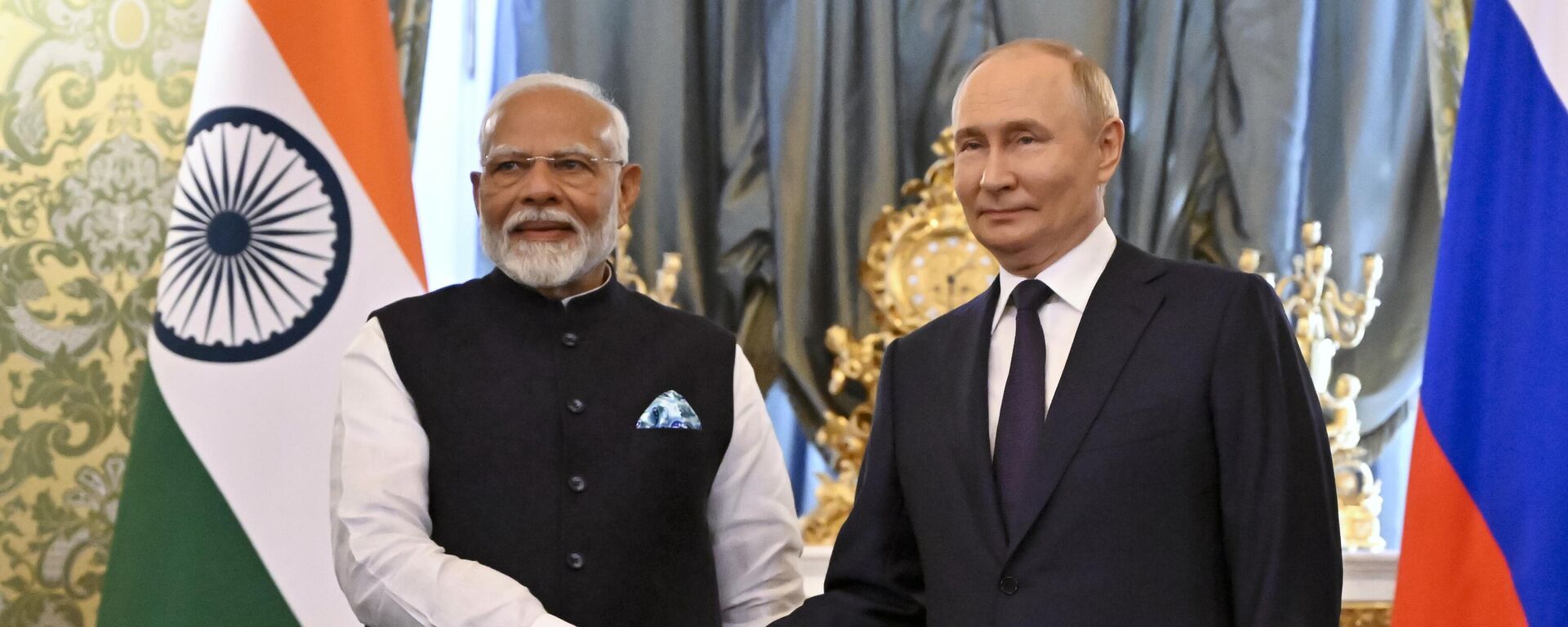https://sputniknews.in/20241231/geopolitical-events-that-shaped-2024--predictions-for-2025-8616994.html
Geopolitical Events That Shaped 2024 & Predictions For 2025
Geopolitical Events That Shaped 2024 & Predictions For 2025
Sputnik India
Legendary Indian political strategist Chanakya's diplomacy revolved around the principles of saam (persuade), daam (incentives or purchase), dand (punishment)... 31.12.2024, Sputnik India
2024-12-31T15:04+0530
2024-12-31T15:04+0530
2025-01-03T11:55+0530
sputnik opinion
donald trump
vladimir putin
india
russia
syria
bharatiya janata party (bjp)
bashar assad
sheikh hasina
us deep state
https://cdn1.img.sputniknews.in/img/07e8/04/05/7048218_0:187:2976:1861_1920x0_80_0_0_dbab333501fa0b975daadb05a3ef37d1.jpg
2024 was an eventful year as far as global power play was concerned, with many nations playing the game of one-upmanship over the other in their attempt to outfox the other.While the US Deep State appeared to have expanded its wings with their alleged meddling in India's electorate process and playing a key role in the ouster of former Prime Minister Sheikh Hasina from Bangladesh, likely propping another anti-New Delhi regime in Dhaka, Russian President Vladimir Putin confidently proving Western nations wrong by hosting a highly successful BRICS summit in Kazan, with over 30 nations making a beeline to join the powerful geo-economic grouping, underlining that he hasn't been isolated.Among other hot topics that grabbed headlines for most of the year were Donald Trump's victory in the US presidential polls, Indian Prime Minister Narendra Modi's record-equalling triumph in the Lok Sabha elections, the ongoing diplomatic row between India and Canada, the friction between Israel and Iran and its allies in the Middle East, Russia tightening its grip on the battlefield in Ukraine, President Bashar al-Assad's dramatic exit from Damascus and the civil unrest in Pakistan.The Rising BRICS CloutThe BRICS summit held under the chair of Russia seemed to have confirmed the bloc's status as the main forum for raising the problems and concerns faced by Global South nations in addition to challenging the Western hegemony of multilateral financial institutions.According to Paul Goncharoff, who is a veteran financial analyst and general director of consulting firm Goncharoff LCC in Moscow, last year was full of unintended consequences, unplanned blowback, and a growing interest by non-G7 aligned countries to get out from what is now clearly viewed as a geopolitically coercive currency hammer.It is also being clearly shown the political, economic and resource price that is being paid by the West in trying to maintain unipolarity without the democratic guise, he added.The several organisations that have both grown and strengthened in the face of sanctions, restrictions, confiscations, or the threat of all the above from the "traditional" financial world are worth more than just a thought, the economic affairs commentator iterated.BRICS has grown this year as noted in Kazan, with the core Brazil, Russia, India, China and South Africa being joined by Belarus, Bolivia, Indonesia, Kazakhstan, Thailand, Cuba, Uganda, Malaysia, and Uzbekistan officially becoming BRICS partners as of this New Year's Day, he noted.Additionally, waiting in the wings for confirmation as partner states are Algeria, Indonesia, Nigeria and Turkiye, Azerbaijan, Bangladesh, Bahrain, Burkina Faso, Cambodia, Chad, Colombia, the Republic of Congo, Equatorial Guinea, Honduras, Kuwait, Laos, Morocco, Myanmar, Nicaragua, Palestine, Pakistan, Senegal, Sri Lanka, South Sudan, Syria, Venezuela, and Zimbabwe.Within this grouping, it is important to consider the cross-memberships of the member and partner countries with powerful blocks like the Eurasian Economic Union (EAEU), Association of Southeast Asian Nations (ASEAN), Shanghai Cooperation Organisation (SCO), Southern Common Market (Mercosur), African Continental Free Trade Area (AfCFTA), and a host of others. A strong and steady realignment within the trade balances of the world, yet not entirely to the benefit of the G7, is taking shape. A Pandora's box has been opened in Washington, and Brussels, and the fallout is only now becoming apparent, Goncharoff suggested.Oreshnik Missile Shakes the WorldRussia's Oreshnik missile made its battlefield debut in the Ukrainian city of Dnepropetrovsk, literally destroying the local military facility there.It is the Eurasian state's latest intermediate-range ballistic missile (IRBM). The Oreshnik flies at a speed of 10 Mach, which is approximately 12,300 kilometers per hour, making it impossible to intercept by anyone in the world, military experts believe.Moreover, it is a MIRV carrying a number of warheads, so the possibility of shooting it down is close to zero.Furthermore, the changes in Russia's nuclear doctrine make it crystal clear that any non-nuclear country backed by a nuclear power would also be considered a threat, and an appropriate response could be prepared by the country's armed forces.Bangladesh TurmoilSince the ouster of Sheikh Hasina on August 5, Bangladesh has increasingly fallen under the influence of religious extremists, and anti-India as well as anti-Hindu forces, Salah Uddin Shoaib Choudhury, the Editor of Blitz media outlet and a counter-terrorism analyst in Dhaka, has said.Considering the currect development in the country, there is a potential of weaponisation of over 1.2 million Rohingya refugees, using them in subversive operations against Myanmar's anti-Muslim rebel groups as well as Hindu nationalist forces in India. Such developments could further destabilise the region, necessitating heightened vigilance and strategic responses from India, the award-winning media personality summed up.Modi 3.0Prime Minister Narendra Modi was back in the top chair of the world's largest democratic state albeit with a reduced majority during the parliamentary elections held earlier this year. His Bharatiya Janata Party (BJP) now depends on allies to run the country's affairs, unlike the previous two five-year terms from 2014-2019, 2019-24 when the BJP held a majority in the Lok Sabha on its own.As per Major (Retd) Manik M Jolly, the third term of Modi will be different from previous ones in terms of geopolitical stand because he started it at four major points :The criticism he faces in India always comes from the organisations, individuals and political parties who actively keep foreign agencies, companies and countries above Indian interests. For whatever reasons, India has massive number of such entities and individuals and they do have enough platforms and influence to raise considerable voice, the military veteran spelled out.Modi's third term comes after him having sorted a few critical issues back home and his focus is definitely and majorly going to be placing India as a forerunner in international space with a aimed focus on economy, exports, defence and energy, the global politics watcher mentioned.Middle East CrisisThe Middle East crisis escalated this year with Israel and its arch-foe Iran trading direct attacks on each other soil that drew Yemen's Houthis, Lebanon-based militant movement Hezbollah and other regional militia forces in a direct confrontation with the Israel Defence Forces (IDF).Nonetheless, it must be noted that the Jewish state did taste a considerable amount of success in eliminating the top-rung of both Hamas and Hezbollah. Among the top leaders of the two outfits that were assassinated by Israel were Hamas chief Ismail Haniyeh and his successor Yahya Sinwar and Hezbollah's powerful secretary-general Hassan Nasrallah.Plus, Israel also dealt a series of blows to Hezbollah through its covert operations, including masterminding the mass explosion of pagers of its fighters in Beirut and its southern Lebanese stronghold.Eventually, the two parties agreed to a ceasefire in November and peace returned to Israel's northern borders while the war rages on in its south with the IDF still carrying out a military offensive there.Israel's war in Gaza has killed more than 45,500 people, mostly civilians, drawing international condemnation, including from allies like France and the US.In the words of Dr. Shubhda Chaudhary, the founder of the Middle East Insights Platform in New Delhi, the ongoing crisis in Gaza under the administration of Israeli Prime Minister Benjamin Netanyahu has become emblematic of the broader political, humanitarian, and geopolitical struggles in the region.The humanitarian catastrophe in Gaza has drawn international mediation efforts, with Egypt and Qatar attempting to broker ceasefires. However, realist theories highlight that such interventions often serve state interests, as these mediators navigate their strategic imperatives while addressing humanitarian concerns. Simultaneously, arms sales and military industrialisation underscore the crisis's transformation into a 'business model', echoing Marxist critiques of conflict profiteering, which assert that war economies benefit dominant capitalist powers, often at the expense of marginalised communities, she indicated.Israel's recent actions, such as airstrikes in Syria's Tartus region and control over buffer zones in southern Syria, illustrate the spillover of its securitisation agenda into a multi-front strategy, driven by expansionist aspirations, the Middle East analyst implied.Ultimately, the Gaza crisis represents a broader geopolitical theater where power dynamics, ideology, and economic interests converge, perpetuating cycles of violence and impeding prospects for a sustainable resolution. Without structural reforms and equitable negotiations, the crisis risks deepening regional instability, she envisaged.Fall of Assad Government in SyriaBashar al-Assad's over two-decade rule in Syria came to an abrupt end in the first week of December as the rebels made a lightening advance and captured the war-torn nation's capital Damascus, forcing the Syrian president to flee to Russia, where he was given diplomatic asylum by President Vladimir Putin's government.The fall of Damascus in Syria was spearheaded by Hayat Tahrir al-Sham (HTS), whose leader Abu Mohammad al-Julani previously carried a $10 million US bounty on his head for his past association with Al-Qaeda.With the HTS and its allied Islamic groups in power in Syria, analysts have predicted a tough time for its minorities.To get an idea of demography in Syria, in the light of serious lack of reliable demographic data Syria's population is broadly majored with 70% Sunni Muslims, living across the country, with 3% Shia Muslims. Within the minorities are Alawites, making up over 10% of the population, living in and around Syria's western coastal region, majorly in the cities of Latakia and Tartus.That said, Syria is also home to religious minorities such as Christians, broadly making a composition of Greek Orthodox, Syriac Orthodox, Maronite, Syrian Catholic, Roman Catholic and Greek Catholic.In addition to this, there are ethnic minorities branching into Druze, Palestinian, Iraqi, Armenian, Greek, Assyrian, Circassian, Mandean and Turkoman groups, living mostly around Damascus. Then, there is a Kurdish-ruled Autonomous Administration of North and East Syria, also known as Rojava, which hosts Syria's largest minority, about 2.5 million Kurdish people, many of those living in and around Damascus.A big population of Syria's Sunni Muslims reside in Syria's northeastern Idlib region, which in years became a stronghold for the opposition (read rebels). It is run by HTS, and became a temporary shelter for over 4 million displaced Sunnis, Christians and Druze, who will be looking to return to their villages now.He witnessed the rise and fall of al-Qaeda in Iraq post-Saddam and understands taking Washington and its allies in confidence. He also understands the need to balance between establishing an Islamic State* in Syria and avoiding Western military intervention, as he desperately needs humanitarian aid from the West or the trade if he wants his government to run without being toppled, the researcher apprised.He tailors his message, presenting moderation to Western media while signaling otherwise to his jihadist supporters. For example, he told Western outlets that minorities like Christians and Druze are safe, while to domestic audiences, he emphasised laws protecting everyone but clearly segregated his followers from non-Muslims.Trump Overpowers Democrats in US Presidential RaceIn November, Republican Donald Trump rewrote history books by becoming the US President to earn two non-consecutive terms in 132 years. The business magnet-turned-politician accomplished the feat by defeating his Democratic rival Kamala Harris in the popular vote as well as the Electoral College votes.Alexander Asafov, international political analyst and First Deputy Chairman of the Public Chamber's Commission on Public Expert Evaluation of Legislative Initiatives under the President of the Russian Federation, doesn't see Trump's return to the Oval Office with much optimism, particularly vis-a-vis America's relations with Russia.Russia has no inflated expectations or illusions regarding Trump's presidency, recognising that attempts to impose American logic and policies will persist. Trump has made several controversial statements on the matter, but Russia's position remains steadfast. Moscow is open to negotiations and discussions, provided there is mutual understanding of Russia's terms and readiness for meaningful dialogue, which is absent in Kiev under its current regime, he stated further.Beyond the Russia-Ukraine conflict, Trump's administration may pursue complex negotiations across various sectors, including sanctions relief and the resumption of economic and other forms of cooperation. Current relations remain negative, but there is potential for improvement. However, these are mere assumptions, as Trump, now a seasoned politician, often makes bold statements that may not materialise, the Russian strategic affairs observer illustrated.What's more, Trump's priorities and agenda are clearly different from Biden. Profitability is paramount for him, including profit from the defense industry. Maintaining dominance in arms exports remains crucial, but he prefers to avoid bearing the financial burden himself, often shifting responsibility to European allies, as seen during his first term with increased NATO contributions, Asafov reckons.Domestically, Trump is expected to prioritise economic policies with external benefits. For example, he aims to lower global energy prices while pressuring Europe to prioritize US gas. Trump is also likely to shift the Ukraine burden onto Europe, continue undermining European industry to favor the US and intensify economic confrontation with China—key distinctions from Biden's approach, he pointed out.Elsewhere, India holds a clearer position in Trump's worldview. He will likely continue pushing NATO weapons sales to India and seek common ground with its leadership. Even so, Trump does not view the Global South as sovereign or autonomous, relying instead on the principle of might, the Russian official expressed.US Deep State's Designs in South Asia, ElsewhereThe US Deep State has continued to be a regular meddler in domestic politics of countries with India's ruling BJP openly accusing it of interference and meddling in the South Asian nation's electoral process.Prime Minister Modi's political outfit has gone as far as to say that the country's main opposition party, the Congress, is colluding with the American Deep State, chiefly with billionaire George Soros and organisations linked with his Open Society Foundations, to overthrow the democratically elected government in India, something of the sort that was orchestrated in neighbouring Bangladesh.BJP politician from the Western state of Goa, Savio Rodrigues, understands that the US Deep State's intent in India is simple.It needs a government favourable to its economic intent and submissive to the imperial lobby, like a colonial state in the past. It will continue to strike at the core of what it sees as India's societal fault lines in the form of religion and caste. The more India is polarised on the lines of caste and creed the more the divisions will occur in our societies, he postulated.According to him, Deep State is a ten-headed Ravana (a demon king, who is the main antagonist in the Hindu epic Ramayana) and that's why, it will not only be challenging for Trump, but he could create his own extension of the Deep State.Trudeau's Political Compulsions Behind His Anti-India RhetoricJustin Trudeau and his administration remained on the offensive, peddling one lie after another about India despite publicly admitting that it had no solid proof to back its claims of India's involvement in the killing of proscribed Khalistani terrorist Hardeep Singh Nijjar.Interestingly, India has repeatedly urged Ottawa to act against those demanding India's Balkanisation.Notably, unlike the Canadian allegations, India has been sharing clear evidence of increasing incidents of attacks on Hindu places of worship, the threats issued to its diplomats by Khalistani extremists and speaking about breaking up India in public forums in the North American country, but to no avail as Trudeau has resisted to take action against anti-India elements due to political compulsions.Dr. Vineet Prakash, a professor specialising in Canadian affairs at the prestigious Jawaharlal Nehru University (JNU) in the national capital echoed the BJP official's remarks, stating that there was a real possibility of Trudeau losing his post of Canada's premier soon as there is growing discontent among his party members.Imran Khan's Party Protests in PakistanAnti-government protesters and the current Pakistani dispensation remained at loggerheads for the most of year and laid a siege of Islamabad last month, once again showcasing that former Prime Minister Imran Khan can still bring the Islamic Republic to a standstill despite being in jail.Syed Khalid Muhammad, Executive Director of CommandEleven, an Islamabad-based consultancy & think tank focused on national security matters, declared that all political parties in Pakistan gain political traction from their ability to bring Pakistan to a standstill to force their narrative to be heard.He thinks that certain factors are at play, when one talks about the scope for reconciliation between the opposition and the treasury benches in Pakistan.Also, the narrative of Operation Goldsmith is an amateur attempt by a select group of politicians to brand Imran Khan again as an agent of Israel, which has been tried many times before, also creates problems for Islamabad. The current government and media touts are very quickly pushing themselves into a corner that will not be easy to emerge from because of their own immature and undiplomatic behaviour, the Islamabad-based expert evaluated.*designated as a terrorist organization and is banned in Russia and several other countries
https://sputniknews.in/20241109/putins-call-for-polyphonic-world-aligns-with-modis-vision-for-global-south-8379127.html
india
russia
syria
south asia
gaza strip
Sputnik India
feedback.hindi@sputniknews.com
+74956456601
MIA „Rossiya Segodnya“
2024
Pawan Atri
https://cdn1.img.sputniknews.in/img/07e6/0c/13/139630_147:0:831:684_100x100_80_0_0_8fa2b25903e7787fe6a2698552c167df.png
Pawan Atri
https://cdn1.img.sputniknews.in/img/07e6/0c/13/139630_147:0:831:684_100x100_80_0_0_8fa2b25903e7787fe6a2698552c167df.png
News
en_IN
Sputnik India
feedback.hindi@sputniknews.com
+74956456601
MIA „Rossiya Segodnya“
Sputnik India
feedback.hindi@sputniknews.com
+74956456601
MIA „Rossiya Segodnya“
Pawan Atri
https://cdn1.img.sputniknews.in/img/07e6/0c/13/139630_147:0:831:684_100x100_80_0_0_8fa2b25903e7787fe6a2698552c167df.png
donald trump, vladimir putin, india, russia, syria, bharatiya janata party (bjp), bashar assad, sheikh hasina, us deep state , joe biden, south asia, imran khan, narendra modi, hezbollah, hamas, gaza strip, oreshnik ballistic missile, missiles, indian national congress (inc), lok sabha
donald trump, vladimir putin, india, russia, syria, bharatiya janata party (bjp), bashar assad, sheikh hasina, us deep state , joe biden, south asia, imran khan, narendra modi, hezbollah, hamas, gaza strip, oreshnik ballistic missile, missiles, indian national congress (inc), lok sabha
2024 was an eventful year as far as global power play was concerned, with many nations playing the game of one-upmanship over the other in their attempt to outfox the other.
While the US Deep State appeared to have expanded its wings with their alleged meddling in India's electorate process and playing a key role in the ouster of former Prime Minister Sheikh Hasina from Bangladesh, likely propping another anti-New Delhi regime in Dhaka, Russian President Vladimir Putin confidently proving Western nations wrong by hosting a highly successful BRICS summit in Kazan, with over 30 nations making a beeline to join the powerful geo-economic grouping, underlining that he hasn't been isolated.
Among other hot topics that grabbed headlines for most of the year were Donald Trump's victory in the US presidential polls, Indian Prime Minister Narendra Modi's record-equalling triumph in the Lok Sabha elections, the ongoing diplomatic row between India and Canada, the friction between Israel and Iran and its allies in the Middle East, Russia tightening its grip on the battlefield in Ukraine, President Bashar al-Assad's dramatic exit from Damascus and the civil unrest in Pakistan.
The BRICS summit held under the chair of Russia seemed to have confirmed the bloc's status as the main forum for raising the problems and concerns faced by Global South nations in addition to challenging the Western hegemony of multilateral financial institutions.
According to
Paul Goncharoff, who is a veteran financial analyst and general director of consulting firm
Goncharoff LCC in Moscow, last year was full of
unintended consequences, unplanned blowback, and a growing interest by non-G7 aligned countries to get out from what is now clearly viewed as a geopolitically coercive currency hammer.
It is also being clearly shown the political, economic and resource price that is being paid by the West in trying to maintain unipolarity without the democratic guise, he added.
"The steps and well-considered measures taken by Russia's President Putin and the Russian Government have served to not only weather the assault of the most sanctions ever directed against any country (19,535) in history but to show economic growth at the same time. Isolation attempts have largely backfired in the court of public opinion, as it has become increasingly clear that information, not just finances have been weaponised against Russia primarily by the legacy media in the Western nations," Goncharoff told Sputnik India.
The several organisations that have both grown and strengthened in the face of sanctions, restrictions, confiscations, or the threat of all the above from the "traditional" financial world are worth more than just a thought, the economic affairs commentator iterated.
BRICS has grown this year as noted in Kazan, with the core Brazil, Russia, India, China and South Africa being joined by Belarus, Bolivia, Indonesia, Kazakhstan, Thailand, Cuba, Uganda, Malaysia, and Uzbekistan officially becoming BRICS partners
as of this New Year's Day, he noted.
Additionally, waiting in the wings for confirmation as partner states are Algeria, Indonesia, Nigeria and Turkiye, Azerbaijan, Bangladesh, Bahrain, Burkina Faso, Cambodia, Chad, Colombia, the Republic of Congo, Equatorial Guinea, Honduras, Kuwait, Laos, Morocco, Myanmar, Nicaragua, Palestine, Pakistan, Senegal, Sri Lanka, South Sudan, Syria, Venezuela, and Zimbabwe.
Within this grouping, it is important to consider the cross-memberships of the member and partner countries with powerful blocks like the Eurasian Economic Union (EAEU), Association of Southeast Asian Nations (ASEAN), Shanghai Cooperation Organisation (SCO), Southern Common Market (Mercosur), African Continental Free Trade Area (AfCFTA), and a host of others. A strong and steady realignment within the trade balances of the world, yet not entirely to the benefit of the G7, is taking shape. A Pandora's box has been opened in Washington, and Brussels, and the fallout is only now becoming apparent, Goncharoff suggested.
"Looking forward into this New Year, Russia, together with other great countries will emerge far stronger economically and geo-politically in what we see is a deeply divided world order. The diplomatic, economic and political efforts being visibly made by Modi, Putin, Xi Jinping, Cyril Ramaphosa and Luiz Inacio Lula da Silva in supercharging the multipolar world and bringing it together at a scale never before seen, will usher in an age of accountability that has long been desired by many," the observer pointed out.
Oreshnik Missile Shakes the World
Russia's Oreshnik missile made its battlefield debut in the Ukrainian city of Dnepropetrovsk, literally destroying the local military facility there.
It is the Eurasian state's latest intermediate-range ballistic missile (IRBM). The Oreshnik flies at a speed of 10 Mach, which is approximately 12,300 kilometers per hour, making it impossible to intercept by
anyone in the world, military experts believe.
Moreover, it is a MIRV carrying a number of warheads, so the possibility of shooting it down is close to zero.
"Oreshnik is not just a hypersonic missile: it is an upper-end hypersonic missile untraceable by the existing air defence platforms on the planet," Group Captain (Retd) Uttam Kumar Devnath said in a conversation with Sputnik India.
Furthermore, the changes in Russia's nuclear doctrine make it crystal clear that any non-nuclear country backed by a nuclear power would also be considered a threat, and an appropriate response could be prepared by the country's armed forces.
"President Putin has sent a clear and crisp message to the West that, need be, Russia will not hesitate to use its nuclear arsenal if it feels that its external security is being threatened," retired Lieutenant-Colonel J.S. Sodhi underscored.
Since the ouster of Sheikh Hasina on August 5, Bangladesh has increasingly fallen under the influence of religious extremists, and anti-India as well as anti-Hindu forces, Salah Uddin Shoaib Choudhury, the Editor of Blitz media outlet and a counter-terrorism analyst in Dhaka, has said.
"One of the most alarming developments is the release of key militant leaders, such as Ansar Al Islam's Jashimuddin Uddin Rahmani, who has called on jihadist and separatist groups in India to declare jihad and work towards disintegration of the country," the journalist expressed in an interview with Sputnik India.
Considering the currect development in the country, there is a potential of weaponisation of over 1.2 million Rohingya refugees, using them in subversive operations against Myanmar's anti-Muslim rebel groups as well as Hindu nationalist forces in India. Such developments could further destabilise the region, necessitating heightened vigilance and strategic responses from India, the award-winning media personality summed up.
Prime Minister Narendra Modi was back in the top chair of the world's largest democratic state albeit with a reduced majority during the parliamentary elections held earlier this year. His Bharatiya Janata Party (BJP) now depends on allies to run the country's affairs, unlike the previous two five-year terms from 2014-2019, 2019-24 when the BJP held a majority in the Lok Sabha on its own.
As per Major (Retd) Manik M Jolly, the third term of Modi will be different from previous ones in terms of geopolitical stand because he started it at four major points :
3.
Impending US elections
4.
Canada's anti-India activities
"As much as we have seen so far, he's done an excellent job in managing them. As a PM, his first priority has and should be India; which he has time and again proved by ensuring that India is not cornered anywhere for the stands it takes. Modi has not only been able to maintain the traditional friendship with Russia and Putin but also managed to not let it turn into a battle of - choose a side - with the West and NATO. On the contrary he's been able to even meet Zelensky and come across as one of the most influential mediators when the need arises," Jolly told Sputnik India.
The criticism he faces in India always comes from the organisations, individuals and political parties who actively keep foreign agencies, companies and countries above Indian interests. For whatever reasons, India has massive number of such entities and individuals and they do have enough platforms and influence to
raise considerable voice, the military veteran spelled out.
Modi's third term comes after him having sorted a few critical issues back home and his focus is definitely and majorly going to be placing India as a forerunner in international space with a aimed focus on economy, exports, defence and energy, the global politics watcher mentioned.
"The criticism he faces from his supporters is that he does not take strong decisions when it comes to neighbours. The regional geopolitics for India is a complicated landmine which I am sure Modi is aware of. He has never shown a knee-jerk reaction approach but rather has a very calculative and steady mind while solving such crises. So we can expect that while everyone wants him to go all guns blazing, he takes his time to resolve matters in a more holistic and future-centric manner, while always keeping India's benefits a priority," Jolly summerised.
The Middle East crisis escalated this year with Israel and its arch-foe Iran trading direct attacks on each other soil that drew Yemen's Houthis, Lebanon-based militant movement Hezbollah and other regional militia forces in a direct confrontation with the Israel Defence Forces (IDF).
Nonetheless, it must be noted that the Jewish state did taste a considerable amount of success in eliminating the top-rung of both Hamas and Hezbollah. Among the top leaders of the two outfits that were assassinated by Israel were
Hamas chief Ismail Haniyeh and his successor
Yahya Sinwar and Hezbollah's powerful secretary-general
Hassan Nasrallah.
Plus, Israel also dealt a series of blows to Hezbollah through its covert operations, including masterminding the mass explosion of pagers of its fighters in Beirut and its southern Lebanese stronghold.
Eventually, the two parties agreed to a ceasefire in November and peace returned to Israel's northern borders while the war rages on in its south with the IDF still carrying out a military offensive there.
Israel's war in Gaza has killed more than 45,500 people, mostly civilians, drawing international condemnation, including from allies like France and the US.
In the words of Dr. Shubhda Chaudhary, the founder of the Middle East Insights Platform in New Delhi, the ongoing crisis in Gaza under the administration of Israeli Prime Minister Benjamin Netanyahu has become emblematic of the broader political, humanitarian, and geopolitical struggles in the region.
"Rooted in theories of securitisation, as posited by the Copenhagen School, the framing of Gaza as a perpetual security threat allows the Israeli state to legitimise extraordinary measures, including military campaigns, displacement, and stringent censorship. Netanyahu's government has intensified control over Gaza and the West Bank, leveraging the crisis as a political tool to consolidate power and deflect internal dissent, particularly as Netanyahu faces corruption charges overseen by Attorney General Gali Baharav-Miara," Chaudhary argued.
The humanitarian catastrophe in Gaza has drawn international mediation efforts, with Egypt and Qatar attempting to broker ceasefires. However, realist theories highlight that such interventions often serve state interests, as these mediators navigate their strategic imperatives while addressing humanitarian concerns. Simultaneously, arms sales and military industrialisation underscore the crisis's transformation into a 'business model', echoing Marxist critiques of conflict profiteering, which assert that war economies benefit
dominant capitalist powers, often at the expense of marginalised communities, she indicated.
Israel's recent actions, such as airstrikes in Syria's Tartus region and control over buffer zones in southern Syria, illustrate the spillover of its securitisation agenda into a multi-front strategy, driven by expansionist aspirations, the Middle East analyst implied.
"Netanyahu's invocation of historical Zionist ideologies, mirroring figures like Theodor Herzl, aligns with constructivist interpretations, where identity and historical narratives shape state actions. This vision of Eretz Israel receives unyielding support from Western powers, particularly the United States, whose foreign policy, informed by structural realism, prioritizes Israel as a strategic ally in the Middle East," Chaudhary remarked.
Ultimately, the Gaza crisis represents a broader geopolitical theater where power dynamics, ideology, and economic interests converge, perpetuating cycles of violence and impeding prospects for a sustainable resolution. Without structural reforms and equitable negotiations, the crisis risks deepening regional instability, she envisaged.
Fall of Assad Government in Syria
Bashar al-Assad's over two-decade rule in Syria came to an abrupt end in the first week of December as the rebels made a lightening advance and captured the war-torn nation's capital Damascus, forcing the Syrian president to flee to Russia, where he was given diplomatic asylum by President Vladimir Putin's government.
The fall of Damascus in Syria was spearheaded by Hayat Tahrir al-Sham (HTS), whose leader Abu Mohammad al-Julani previously carried a $10 million US bounty on his head for his past association with Al-Qaeda.
With the HTS and its allied Islamic groups in power in Syria, analysts have predicted a tough time for its minorities.
To get an idea of demography in Syria, in the light of serious lack of reliable demographic data Syria's population is broadly majored with 70% Sunni Muslims, living across the country, with 3% Shia Muslims. Within the minorities are Alawites, making up over 10% of the population, living in and around Syria's western coastal region, majorly in the
cities of Latakia and Tartus.
That said, Syria is also home to religious minorities such as Christians, broadly making a composition of Greek Orthodox, Syriac Orthodox, Maronite, Syrian Catholic, Roman Catholic and Greek Catholic.
In addition to this, there are ethnic minorities branching into Druze, Palestinian, Iraqi, Armenian, Greek, Assyrian, Circassian, Mandean and Turkoman groups, living mostly around Damascus. Then, there is a Kurdish-ruled Autonomous Administration of North and East Syria, also known as Rojava, which hosts Syria's largest minority, about 2.5 million Kurdish people, many of those living in and around Damascus.
A big population of Syria's Sunni Muslims reside in Syria's northeastern Idlib region, which in years became a stronghold for the opposition (read rebels). It is run by HTS, and became a temporary shelter for over 4 million displaced Sunnis, Christians and Druze, who will be looking to return to their villages now.
"Despite that, I am very wary of the HTS' leader al-Julani who is broadly considered to be more media-friendly than most Salafi/Wahabi affiliates. This is true because before joining Al Qaeda he was studying media studies, and those close to him, describe his knack for journalistic style of arguments," Anant Mishra, a Marie Curie Research Fellow at the International Centre for Policing and Security (ICPS), University of South Wales, divulged to Sputnik India.
He witnessed the rise and fall of al-Qaeda in Iraq post-Saddam and understands taking Washington and its allies in confidence. He also understands the need to balance between establishing an Islamic State* in Syria and avoiding Western military intervention, as he desperately needs humanitarian aid from the West or the trade if he wants his government to run without being toppled, the researcher apprised.
He tailors his message, presenting moderation to Western media while signaling otherwise to his jihadist supporters.
For example, he told Western outlets that minorities like Christians and Druze are safe, while to domestic audiences, he emphasised laws protecting everyone but clearly segregated his followers from non-Muslims.
"My prognosis is that Christians may receive preferential treatment to suit the eyes of the Western world, they may face staunch discrimination or even subjugation in matters of opportunities to work, cloaked discriminatory practices such as being banned from holding public office. The HTS will aim to win the West's favour by appearing to treat Christians positively from the outside, with an intent to smooth his image in the eyes of those branding him jihadist in the West, hoping to use the holiday season to ease its relations and develop some positivity…but may isolate/subjugate the non-Muslims via domestic policies," Mishra notified.
Trump Overpowers Democrats in US Presidential Race
In November, Republican Donald Trump rewrote history books by becoming the US President to earn two non-consecutive terms in 132 years. The business magnet-turned-politician accomplished the feat by defeating his Democratic rival Kamala Harris in the popular vote as well as the Electoral College votes.
Alexander Asafov, international political analyst and First Deputy Chairman of the Public Chamber's Commission on Public Expert Evaluation of Legislative Initiatives under the President of the Russian Federation, doesn't see Trump's return to the Oval Office with much optimism, particularly vis-a-vis America's relations with Russia.
"Trump remains an American president, committed to pro-American policies and actions that serve US interests. While his public statements might sometimes create hope for warming relations or shared visions, actions ultimately define outcomes. Trump adheres to the vision of a unipolar world frequently criticised by President Putin," Asafov conveyed to Sputnik India.
Russia has no inflated expectations or illusions regarding Trump's presidency, recognising that attempts to impose American logic and policies will persist. Trump has made several controversial statements on the matter, but Russia's position remains steadfast. Moscow is open to negotiations and discussions, provided
there is mutual understanding of Russia's terms and readiness for meaningful dialogue, which is absent in Kiev under its current regime, he stated further.
Beyond the Russia-Ukraine conflict, Trump's administration may pursue complex negotiations across various sectors, including sanctions relief and the resumption of economic and other forms of cooperation. Current relations remain negative, but there is potential for improvement. However, these are mere assumptions, as Trump, now a seasoned politician, often makes bold statements that may not materialise, the Russian strategic affairs observer illustrated.
What's more, Trump's priorities and agenda are clearly different from Biden. Profitability is paramount for him, including profit from the defense industry. Maintaining dominance in arms exports remains crucial, but he prefers to avoid bearing the financial burden himself, often shifting responsibility to European allies, as seen during his first term with increased NATO contributions, Asafov reckons.
"There is speculation that Trump may be forced to withdraw from Ukraine, akin to Biden's exit from Afghanistan, but this remains uncertain. Current public statements and hypothetical plans, such as those from Kellogg or Trump's son, lack clear direction. Trump's statements fluctuate — from promising swift action in Ukraine to vague proposals for Europe. For now, these are rhetorical interventions without concrete plans. Russia is prepared for any scenario, as consistently articulated by President Putin. Moscow remains open to negotiations, but only if the other party, including Kiev, demonstrates readiness and respects Russian sovereignty," the political analyst noted.
Domestically, Trump is expected to prioritise economic policies with external benefits. For example, he aims to lower global energy prices while pressuring Europe to prioritize US gas. Trump is also likely to shift the Ukraine burden onto Europe, continue undermining European industry to favor the US and intensify economic confrontation with China—key distinctions from Biden's approach, he pointed out.
Elsewhere, India holds a clearer position in Trump's worldview. He will likely continue pushing NATO weapons sales to India and seek common ground with its leadership. Even so, Trump does not view the Global South as sovereign or autonomous, relying instead on the principle of might, the Russian official expressed.
"India's extensive experience in safeguarding its sovereign decisions over decades places it in a strong position. As a significant center in the multipolar world, India commands respect from Russia, which values its proposals for resolving the Ukrainian crisis and its contributions toward global peace — an increasingly vital goal," Asafov underscored.
US Deep State's Designs in South Asia, Elsewhere
The US Deep State has continued to be a regular meddler in domestic politics of countries with India's ruling BJP openly accusing it of interference and meddling in the South Asian nation's electoral process.
Prime Minister Modi's political outfit has gone as far as to say that the country's main opposition party, the Congress, is colluding with the American Deep State, chiefly with billionaire
George Soros and organisations
linked with his Open Society Foundations, to overthrow the democratically elected government in India, something of the sort that was orchestrated in neighbouring Bangladesh.
BJP politician from the Western state of Goa, Savio Rodrigues, understands that the US Deep State's intent in India is simple.
It needs a government favourable to its economic intent and submissive to the imperial lobby, like a colonial state in the past. It will continue to strike at the core of what it sees as India's societal fault lines in the form of religion and caste. The more India is polarised on the lines of caste and creed the more the divisions will occur in our societies, he postulated.
"Let me give you an example: Why is it that Western media controlled by the Deep State often portrayed 'Muslims and Christians in India in danger in Modi's government' but remain silent on the atrocities to Hindus and Christians in Bangladesh? Deep State wants Hindus, Muslims and Christians to live in fear and hate. The problems in Bangladesh and the conflict in Manipur expose the hand of the Deep State to foment trouble in India. CAA protests and farmers' demonstrations all have the hidden hand of US-based Deep State," Rodrigues, who is also a prominent face in the country's geopolitical circles, told Sputnik India.
According to him, Deep State is a ten-headed Ravana (a demon king, who is the main antagonist in the Hindu epic Ramayana) and that's why, it will not only be challenging for Trump, but he could create his own extension of the Deep State.
"The objective of the Deep State is global control and it is driven by economics. Trump is a businessman his decisions will be based on the economic advantage he can get for America, his lobbyists and himself. Trump has only one objective 'Make America Great Again'. And in that pursuit every other nation, people or political leader is indispensable when it serves a purpose and dispensable when it does not serve a purpose," Rodrigues claimed.
Trudeau's Political Compulsions Behind His Anti-India Rhetoric
Justin Trudeau and his administration remained on the offensive, peddling one lie after another about India despite publicly admitting that it had no solid proof to back its claims of India's involvement in the killing of proscribed Khalistani terrorist Hardeep Singh Nijjar.
Interestingly, India has repeatedly urged Ottawa to act against those demanding India's Balkanisation.
"This includes preventing secessionist and extremist elements from glorifying the assassination of our leaders; issuing threats to our current political leadership and diplomats; disrespecting and vandalising places of worship; and espousing for the balkanisation of India by holding so-called referendums," Minister of State (MoS) in the Ministry of External Affairs (MEA), Kirti Vardhan Singh, recently told the Indian parliament.
Notably, unlike the Canadian allegations, India has been sharing
clear evidence of increasing incidents of attacks on Hindu places of worship, the threats issued to its diplomats by Khalistani extremists and speaking about
breaking up India in public forums in the North American country, but to no avail as Trudeau has resisted to take action against anti-India elements due to political compulsions.
"There is no doubt about the fact that India had no involvement in Nijjar's killing. This entire saga is politically motivated for the benefit of the existing government of Canada. This government is bound to fall and once Trudeau loses his chair, this issue will die its natural death," BJP's chief spokesperson in the northern state of Punjab, Colonel (Retired) Jaibans Singh, underlined.
Dr. Vineet Prakash, a professor specialising in Canadian affairs at the prestigious Jawaharlal Nehru University (JNU) in the national capital echoed the BJP official's remarks, stating that there was a real possibility of Trudeau losing his post of Canada's premier soon as there is growing discontent among his party members.
"While Trudeau could lose his chair in the weeks to come, he has vitiated the atmosphere between the two nations so much that it will take some time for the relations to return to normalcy. But there's no doubt that his exit as Canadian Prime Minister would help in reestablishing faith and trust in New Delhi-Ottawa ties," the academic told Sputnik India.
Imran Khan's Party Protests in Pakistan
Anti-government protesters and the current Pakistani dispensation remained at loggerheads for the most of year and laid a siege of Islamabad last month, once again showcasing that former Prime Minister Imran Khan can still bring the Islamic Republic to a standstill despite being in jail.
Syed Khalid Muhammad, Executive Director of CommandEleven, an Islamabad-based consultancy & think tank focused on national security matters, declared that all political parties in Pakistan gain political traction from their ability to bring Pakistan to a standstill to force their narrative to be heard.
"We've seen this with the Pakistan People's Party and the more militant Pakistan Muslim League - Nawaz & Altaf Hussain's Muttahida Qaumi Movement. The difference between Imran Khan's Pakistan Tehreek-e-Insaf (PTI) and the others is that PTI actually has real national, and international, support," Khalid Muhammad stated in a conversation with Sputnik India.
He thinks that certain factors are at play, when one talks about the scope for reconciliation between the opposition and the treasury benches in Pakistan.
First, the current leadership of PTI is not loyal to Imran Khan at all. Since Imran has been in jail, the people selected to lead the party have gained political mileage for themselves, but not among the worker base, which is extremely upset with their leadership of the party.
Second, the establishment must also be willing to
agree to the terms that Imran Khan sets forward, not those at the negotiating table because at the end of the day, it's Imran Khan who will decide if he accepts the reconciliation or not, the think tanker elaborated.
Third, Imran has never shown the willingness to surrender to negotiated terms. There have been numerous rounds of negotiations by the establishment with Imran himself, where he has clearly set forth his demands for reconciliation, Khalid Muhammad asserted.
Also, the narrative of Operation Goldsmith is an amateur attempt by a select group of politicians to brand Imran Khan again as an agent of Israel, which has been tried many times before, also creates problems for Islamabad. The current government and media touts are very quickly pushing themselves into a corner that will not be easy to emerge from because of their own immature and undiplomatic behaviour, the Islamabad-based expert evaluated.
"As an apolitical observer, I can honestly say that the government in Islamabad is going to face significant backlash after January 20th when Donald Trump takes the oath of office as President of the United States. Pakistan has faced sanctions many times from America, which have hampered national objectives and growth. This time, they are literally attempting to pick a fight well outside their weight class and aren't mentally or economically ready for the backlash Islamabad will receive," he concluded.
*designated as a terrorist organization and is banned in Russia and several other countries
